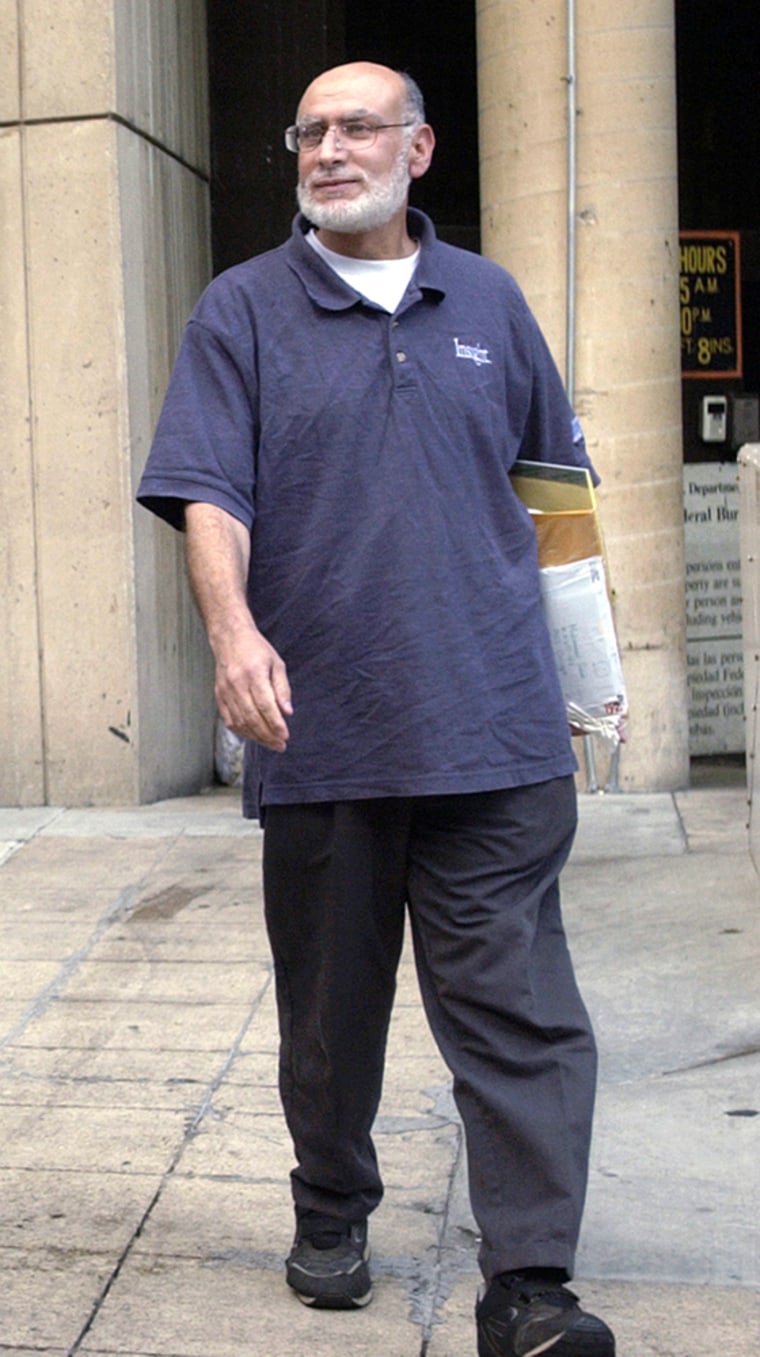A hearing is taking place at the federal courthouse that has all the intrigue of a spy novel — Israeli agents, disguises and allegations of torture.
But that intrigue is being kept far from the public eye: Two security guards block the public and press from entering the closed courtroom, a move that has raised many eyebrows and incensed some civil liberties advocates.
The pretrial hearing involves Muhammad Salah, a Bridgeview, Ill., man charged with laundering money for the Palestinian militant group Hamas. Salah was arrested in Israel in 1993 and confessed but says he was tortured into giving that confession.
Two Israeli intelligence agents are being called to testify about Salah’s interrogation in an effort to determine whether the confession can be used at Salah’s trial.
Although experts say judges frequently take special precautions to protect witnesses, the judge’s decision to keep the pretrial hearing secret to better safeguard the agents against reprisals has upset opponents of government secrecy.
Fake names, ‘light disguises’
“I don’t believe serving the interest of a foreign intelligence agency is high priority for the American people,” said Ahmed Rehab, spokesman for the Council on American-Islamic Relations in Chicago. “A higher priority is a fair and open trial guaranteed in the Constitution.”
Over defense objections, U.S. District Judge Amy St. Eve ruled in January that she would close the courtroom for the Israeli agents, offer heavy security and permit them the use of pseudonyms and “light disguises.”
Salah can remain in the courtroom during the testimony and his attorneys can cross-examine the witnesses, although he won’t know the agents’ true identities.
Salah’s attorneys objected, arguing that their client has a constitutional right — found in the Confrontation Clause of the Sixth Amendment — to confront his accusers.
Dick Carelli, spokesman for the Administrative Office of the U.S. Courts in Washington, said it is not rare for judges to take special precautions — including disguises or closing the court — to ensure the safety of witnesses.
Some judges also have allowed female witnesses in sexual assault cases the permission to testify from behind a screen or by one-way closed circuit TV.
Blocked testimony a departure from past
What is rare about the Salah case, according to Northwestern University law professor Ron Allen, is St. Eve’s decision to block the agents’ testimony from the public.
“It’s very rare because we have such a strong tradition of openness, although most cases are run-of-the-mill cases,” he said.
Prosecutors will make transcripts of the testimony public — minus material that the government deems classified under the federal Classified Information Procedures Act — within seven days after the final transcript is issued.
Salah was indicted in August 2004 along with Abdelhaleem Hasan Abdelraziq Ashqar of Alexandria, Va., and Mousa Mohammed Abu Marzook. Salah and Ashqar have pleaded not guilty; Marzook is believed to be living in Syria.
Recruiting for Hamas alleged
Salah’s actions included “recruiting efforts, military training efforts, financing efforts and other activities,” prosecutor Joseph M. Ferguson has said.
Ashqar attorney Thomas Anthony Durkin attended part of Monday’s hearing and declined to comment on the specifics of the proceedings, but he said they left him feeling uneasy.
“I found it very disquieting, and I walked away with a far greater appreciation for the right to a public trial,” Durkin said. “The normal flow of people in and out of the courtroom was missing.”
St. Eve declined to comment through a spokesman, and Mark Gregoline, a spokesman for the U.S. Marshals Service in Chicago, said his office does not comment on security measures.
Salah’s trial is scheduled for October.
